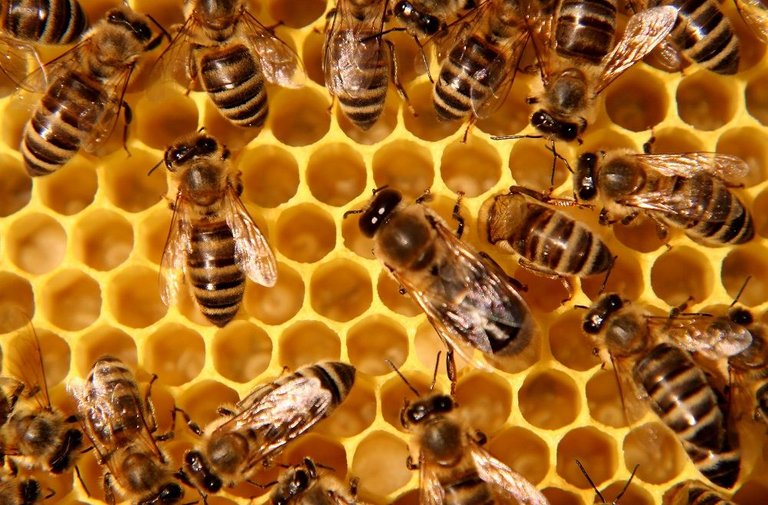
A good childhood friend whom I hadn't seen for over 40 years suddenly appeared in my life or rather in my ears, if you don't understand what I mean, I'll explain.
I have been in the habit for so many years that I no longer remember when that routine hit me, of bathing every morning listening to news and opinions on the radio, for this I use a transistor Sony that already has, she too, many seasons under the steam and the humidity that the shower gives off every morning, has some rusty parts surely because it was not intended for such a use but it is a noble product and it continues to work.
The previous Sunday I listened to an award-winning radio broadcast and very well positioned by the morning audience of that usual day of rest, the general theme is dedicated to the field and specialists in various subjects pass through there who explain and comment on soils, crops, livestock, climate and a great variety of other topics, always thinking about the people of the country and the companies dedicated to those industries "without chimneys" as it was used to say of those that did not use machinery or large ovens and boilers very characteristic of the industrial era of the century. past.
That Sunday I was listening to the program of the field and an expert began to talk about bees, I was fascinated by both his presentation and the interesting topic he was talking about. I fear that both I and many who know some of the enormous benefits that bees bring to humanity; benefits that cover several important aspects of life on our planet such as food, health, construction, pollination of essential flowers and plants and even examples of organized work.
At that time, I learned that these small beings are one of only two groups of invertebrates that have been domesticated, only two of the most abundant class in the world. An estimated 8 million species have only been cataloged approximately 15%. Just the bees and the silkworm.
It was a real pleasure to attend that presentation, but what struck me the most was hearing at the end that the specialist was my childhood friend, the one I haven't seen for 40 years.
I'm still trying to get in touch with him.

Un buen amigo de la infancia al que no veía desde hace más de 40 años apareció de repente en mi vida o mejor dicho en mis orejas, si no entienden a que me refiero, paso a explicar.
Tengo por costumbre desde hace tantos años que ya no recuerdo desde cuando se me pegó esa rutina, de bañarme cada mañana escuchando noticias y opiniones en la radio, para ello utilizo una Sony a transistores que ya tiene, también ella, muchas temporadas bajo el vapor y la humedad que desprende la regadera cada mañana, tiene algunas partes oxidadas seguramente porque no fue pensada para semejante uso pero es un producto noble y sigue funcionando.
El domingo anterior escuchaba una emisión radiofónica galardonada y muy bien posicionada por la audiencia matinal de ese habitual día de descanso, la temática general está dedicada al campo y por allí pasan especialistas en varias materias que explican y comentan sobre suelos, cultivos, ganado, clima y una gran variedad de otros temas, siempre pensando en la gente de campo y en las empresas dedicadas a esas industrias “sin chimeneas” como se acostumbraba decir de aquellas que no utilizaban maquinarias ni grandes hornos y calderas muy características de la época industrial del siglo pasado.
Ese domingo escuchaba entonces el programa del campo y un experto comenzó a hablar sobre las abejas, quedé fascinado tanto por su presentación como por el interesante tema sobre el que hablaba. Tema que tanto yo como muchos que conocen algunos de los enormes beneficios que las abejas brindan a la humanidad; beneficios que abarcan varios aspectos importantes de la vida en nuestro planeta como la alimentación, la salud, la construcción, la polinización de flores y plantas esenciales y hasta ejemplos de trabajo organizado.
En ese momento me enteré que estos pequeños seres son uno de solamente dos grupos de invertebrados que han podido ser domesticados, solo dos de la clase más abundante en el mundo y de la cual se estima 8 millones de especies y que solo han podido catalogarse aproximadamente un 15%. Solo las abejas y el gusano de seda.
Fue un verdadero placer atender esa presentación, pero lo que más me impactó fue escuchar al final que el especialista era mi amigo de la infancia, ese al que hace 40 años que no veo.
Todavía estoy tratando de conseguir contactarme con él.
Las fotografías son de mi propiedad excepto las que menciono la fuente.
The photographs are my property except those mentioned by the source.
Héctor Gugliermo
@hosgug
Congratulations @hosgug! You have completed the following achievement on the Hive blockchain and have been rewarded with new badge(s) :
You can view your badges on your board and compare yourself to others in the Ranking
If you no longer want to receive notifications, reply to this comment with the word
STOPTo support your work, I also upvoted your post!
Support the HiveBuzz project. Vote for our proposal!
Qué maravilloso tema , las abejas son tan fundamentales en nuestro planeta, las maravillas de Dios pensar que le gusto tanto el programa y darse cuenta al final del mismo que era su amigo de la infancia el experto, gran coincidencia.
Espero pueda contactarse con él.
Saludos @hosgug, como siempre brindandonos un gran contenido
Muchas gracias @delicarola ya me contacté y nos reuniremos apenas termine el confinamiento por la pandemia, el vive en Balcarce, a 400 kilómetros de Buenos Aires.